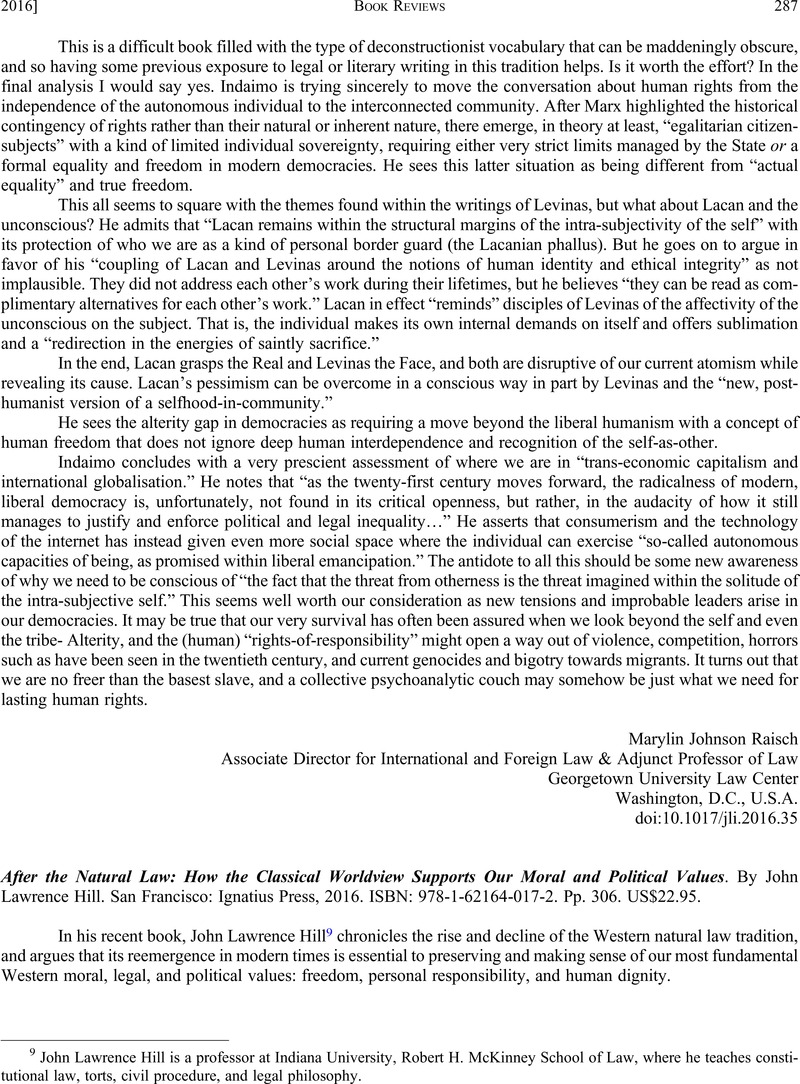No CrossRef data available.
Article contents
After the Natural Law: How the Classical Worldview Supports Our Moral and Political Values. By John Lawrence Hill . San Francisco: Ignatius Press, 2016. ISBN: 978-1-62164-017-2. Pp. 306. US$22.95.
Review products
Published online by Cambridge University Press: 25 November 2016
Abstract

- Type
- Book Reviews
- Information
- Copyright
- Copyright © The Author(s) 2016
References
9 John Lawrence Hill is a professor at Indiana University, Robert H. McKinney School of Law, where he teaches constitutional law, torts, civil procedure, and legal philosophy.
10 E.g. John Finnis’ argument that there are basic goods and truths we can know intuitively without the need for complex metaphysical theories.
11 The materialist idea as Hill articulates it entails that every effect has a material cause, and that given a cause or set of causes, there can be no effect other than the one that occurs. Given this iron clad law of cause and effect, all events have been predetermined since the dawn of time. One of the consequences of determinism as it applies to human beings is that in reality, despite the evidence of our own experience, we don't make free choices. Therefore, since our actions are solely, products of biological and environmental factors, no one can ultimately be held responsible for what they do.




